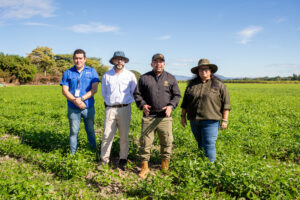
The agri-food sector is positioned as a major force for fostering economic development and job creation in a world with a steadily growing population. According to the World Bank, this sector has the potential to significantly boost global progress if strategies are adopted that prioritize not only economic growth, but also environmental sustainability and nutrition.
To harness this potential, it is essential to transform agrifood systems toward practices that are more resilient to climate change. This implies adopting innovative technologies, improving the efficiency of natural resource use and implementing policies that promote adaptation to adverse climatic conditions. At the same time, it is crucial to ensure that these measures strengthen food security and reduce inequalities in access to nutritious food.

The World Bank stresses that this transition requires active collaboration between governments, businesses and communities. Governments must lead with public policies that encourage investment in sustainable infrastructure and research on innovative agriculture. Companies can play a key role by adopting business models that integrate sustainability throughout the value chain.
In addition to economic benefits, transforming the food sector can help mitigate environmental degradation. Implementing regenerative agricultural practices and controlling food waste are necessary measures to reduce environmental impact and preserve natural resources for future generations.

The agrifood sector has the potential to be a pillar of sustainable development and job creation. However, to unleash its full potential, it is essential to adopt a holistic approach that prioritizes nutrition, sustainability and climate resilience. Governments and businesses have the opportunity to lead this transformation and ensure a more just and sustainable future for all.







